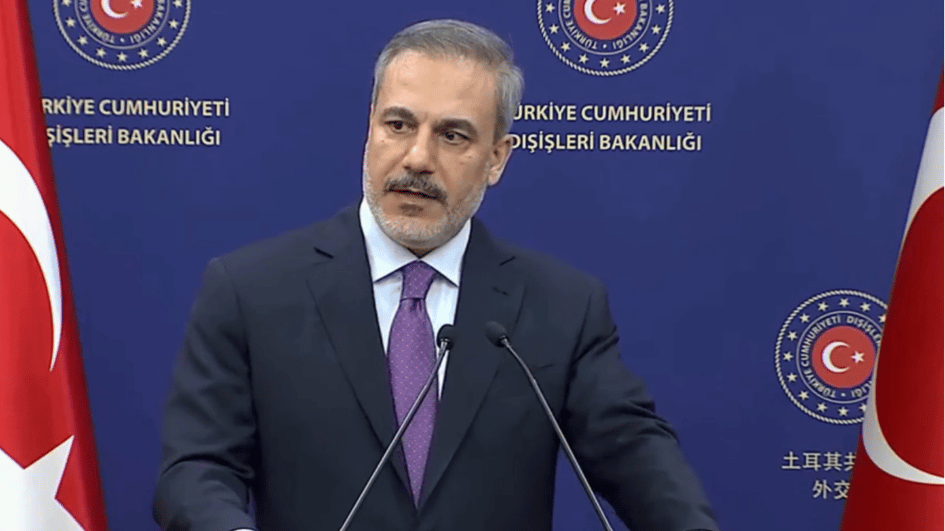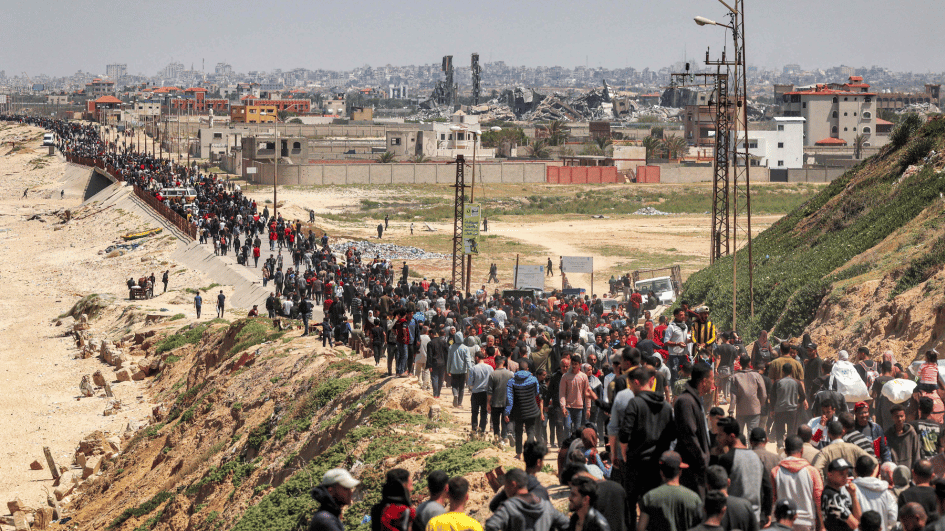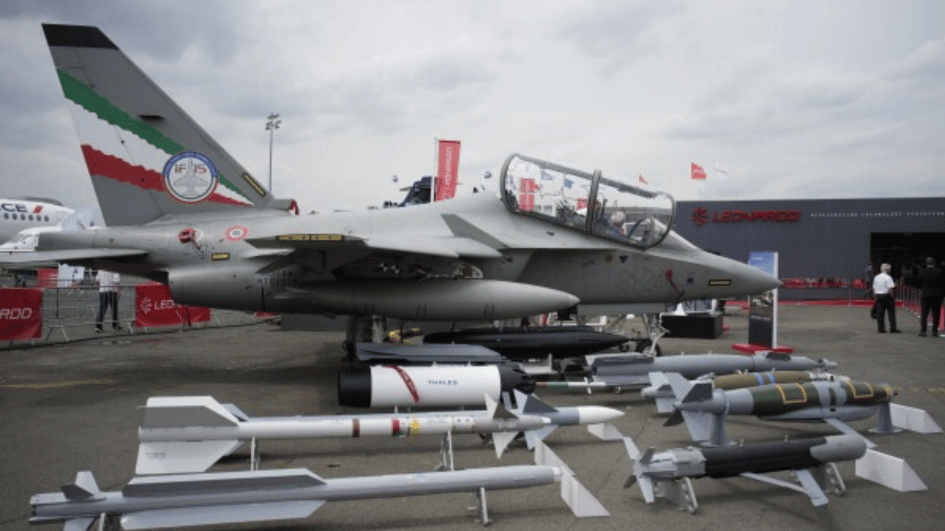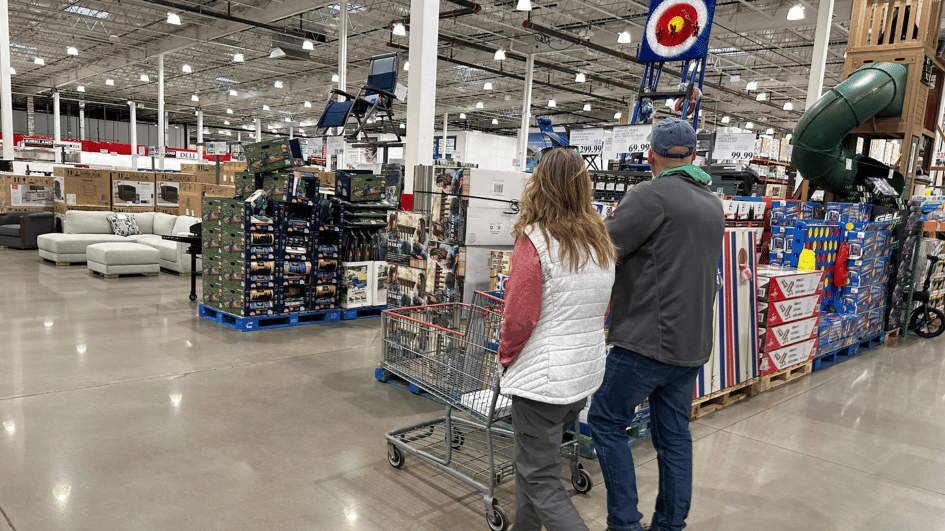Turkish PM blames opposition, world powers as protest death toll rises
ANKARA
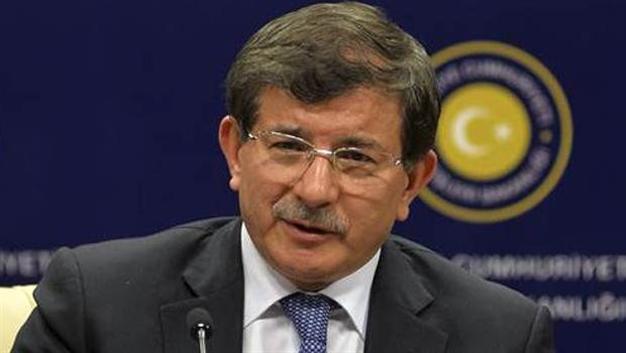
Davutoğlu chaired a critical security summit in Ankara on Oct 8.
Turkish Prime Minister Ahmet Davutoğlu has defended his government on its policies on Syria, as the death toll in the worst street unrest in Turkey's recent past hit 22."The ones who were silent in the face of the death of 300,000 people in the past 3.5 years, ignoring the use of chemical weapons, SCUD missiles and barrel bombs [in Syria], are suddenly putting an effort to create an international perception as if Turkey must immediately solve the problem in Kobane itself," Davutoğlu said Oct. 8 following a security summit in Ankara.
He particularly pointed at Turkey's opposition parties, as well as the five permanent members of the United Nations Security Council.
Davutoğlu also declared calls to hold rallies in support of Kobane to be "against democracy."
Chief of General Staff Gen. Necdet Özel, deputy prime ministers Bülent Arınç, Ali Babacan and Yalçın Akdoğan, Foreign Minister Mevlüt Çavuşoğlu, Interior Minister Efkan Ala, National Defense Minister İsmet Yılmaz were among the senior officials who attended the security meeting.
The meeting was focused on the aftermath of the violent protests against the advance of the Islamic State of Iraq and the Levant (ISIL) on the Kurdish town of Kobane near Syria's border with Turkey.
The death toll rose to 21 late Oct. 8 with two more bodies found in the emptied streets of Mardin, one of the six southeastern provinces where the government has declared a curfew to quell the unrest, mainly fueled by the supporters of the outlawed Kurdistan Workers' Party (PKK) and Hizbullah, a radical Islamist group in Turkey whose members are mostly Kurdish.
"I would like all our citizens to know about our resolute position for the solution process [to solve Turkey's Kurdish question]. We can't sacrifice the solution process to any vandalism. However, we also can't take a position that will tolerate violence for the sake of the solution process," Davutoğlu added.
Kurds detained at border on suspicion of links to PKK
Meanwhile, Turkey detained dozens of Kurds who crossed the border from the besieged Syrian town of Kobane on suspicion of links to the outlawed Kurdistan Workers’ Party (PKK), officials said on Oct. 8, according to Agence France-Presse.
A local official in the Turkish border town of Suruç said around 265 people were taken into custody for fingerprint identification after they crossed from the mainly Kurdish town, which is under attack from ISIL.
"Their fingerprints will be identified entirely for security purposes. They could be members of the organization," he said, referring to the PKK, which Turkey’s government refuses to name.
He said they had not been placed under formal arrest, adding that "this is a routine procedure we also applied to Turkmen soldiers who fled to Turkey."
Turkey fears the standoff around Kobane could lead to the creation of a Kurdish fighting force overlapping the Turkish and Syrian borders.
Syria-based Kurds fighting with the People’s Defense Units (YPG) against ISIL are affiliated to the PKK militants who have fought the Turkish authorities for the last three decades in an insurgency that has claimed 40,000 lives.
"From now on, whoever comes from the other side of the border will be either from the PKK or the YPG. We are talking about the country’s security," the Turkish official said.
Kurdish officials earlier this week said all civilians had already fled Kobane.
The Turkish government has prevented Kurds from crossing into Syria to join the fight against ISIL, infuriating locals and fueling deadly protests across Turkey.
Idris Nahsen, a Kurdish official from Kobane who fled to Turkey after escalating clashes between Kurds and ISIL insurgents, said hundreds had been detained after crossing the border.
"Some 350 civilians crossed to Turkey overnight but the Turkish intelligence captured them, accusing them of links with the PKK," he told AFP by telephone.
He said the detainees, currently being held in two different schools in Suruç, burned blankets on Oct. 7 night and were threatening to set themselves on fire.
One of those detained, Mustafa Bali, another former official from Kobane who crossed into Turkey last week, said many detainees were on hunger strike.
"The civilians, including journalists, women, children and other men were arrested and placed in a hall," he said.
"We have been under arrest for three days. The YPG asked us to evacuate the city because they declared Kobane a military zone and the Turkish authorities took us to this hall in Suruc," he said, adding that they were barred from going outside.
"We are packed in here, with no air. They don’t open any windows or doors. Four people got sick because of the inhumane conditions," he said.
The Turkish official, however, denied a hunger strike, saying the detainees refused to eat only Tuesday night.
Meanwhile, the Turkish army said it had seized three Kalashnikovs from a group of five YPG "terrorists" who were traveling across the border from Syria to Turkey.
Bali said the army was now assuming that any Kurd still remaining in Kobane was a YPG fighter.
"They ask us why we fled, accusing us of belonging to YPG. We are supposed to be refugees but they don’t set us free," he said.
Turkey was already struggling to cope with the Syrian refugees even before more than 180,000 residents of Kobane have fled to Turkey over the past three weeks.
Syrian refugees in Turkey face hard winter
More than a million Syrian refugees in Turkey may go without food, medicine and shelter unless there is an increase in international funding, the U.N. refugee agency said on Oct. 8, according to Reuters.
Carol Batchelor, the U.N. High Commissioner for Refugees (UNHCR) representative in Turkey, said there was a global responsibility to look after the refugees, as the inflow has now far exceeded the international support Ankara has received.
"The basic needs of the Syrian refugees vastly outweigh the support and funding from the international community," Batchelor told Thomson Reuters Foundation.
The majority of the 1.5 million Syrian refugees in Turkey live outside refugee camps, and Batchelor said this was one of the biggest challenges facing the country.
"While there are 22 refugee camps hosting 220,000 people across Turkey, this means more than a million Syrians are in temporary shelters like mosques, schools and parks," Batchelor said in a telephone interview from Ankara. "These are the people who need urgent help, but the longer the conflict goes on, the worse their situation will become."
Turkey received only 37 percent of the funding it requested as part of the 2014 Syria Regional Refugee Response Plan (RRP6), Batchelor said.
RRP6, coordinated by the United Nations, brought together more than 155 donors to help Syrian refugees and the local communities hosting them in Turkey, Egypt, Jordan, Lebanon and Iraq.
Batchelor said that while $3.5 billion had been spent on the Syria crisis in the last 3.5 years, less than $300 million of international funding had been allocated to Turkey.
Extra funding is needed not only for food, medicine and shelter, but also to provide basic education to child refugees, who account for more than half the Syrian refugees in Turkey, Batchelor said.
The UNHCR has been working closely with the Turkish authorities to help the refugees get shelter, hospital care and translation services, but Batchelor said the burden of looking after Syrian refugees should not fall on Turkey alone. "Turkish people have been very welcoming and supportive, and international solidarity must be equally forthcoming to ensure this unprecedented number of refugees is looked after."
The UNHCR protects and supports refugees at the request of a government or the United Nations itself and assists in their voluntary repatriation, local integration or resettlement to a third country.


